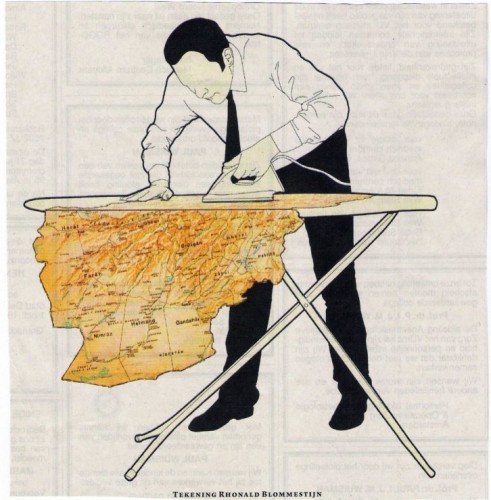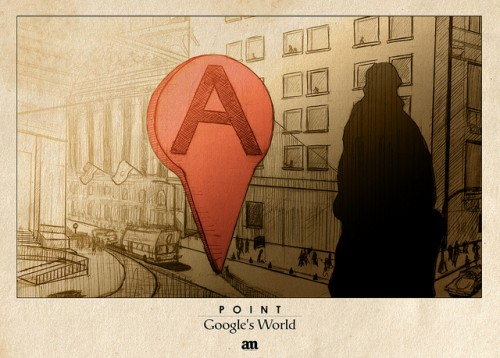
I recently had car trouble, near midnight, still three hours away from a weekend getaway. My pickup jammered to a halt on the side of the road in Godknowswhere, South Carolina and, with my girlfriend in the passenger’s seat, it was easy to expect there was some appropriate know-how code for this kind of mishap; you listen to the clicks of the engine, you pop the hood, you check valves. Instead, I ran through the diagnostic process only a 21st century suburban kid can. I pulled off, panicked, thanked God I had my iPhone, and called my (girlfriend’s) nearest AAA representative. She described the sound of the engine to the rep while I “diagnosed” the issue from the internet (3G was still pretty good there). I slowly came, via Google, to the great and false revelation that my engine must have run out of oil and my truck was now engineless. One forum said “When you’ve run out of oil, your engine block is now a really good paperweight.” While I began breathing shallowly about this bad news, my girlfriend – on the phone with the agent – asked me what exit was nearest, what town and crossroad were nearest. Using my phone, I mapped it, located us, and told her.
 Within the hour, my truck was towed to a shop, my friends at the beach were on their way to pick us up, and my fears about the engine had been alleviated by the Expert picking us up (“It’s probably just the fuel pump,” he said). Crisis averted, I never even got out of my truck.
Within the hour, my truck was towed to a shop, my friends at the beach were on their way to pick us up, and my fears about the engine had been alleviated by the Expert picking us up (“It’s probably just the fuel pump,” he said). Crisis averted, I never even got out of my truck.
I have, on several occasions, looked back on this moment and been grateful for my phone. It is in some ways a testament to its lightening capabilities. And there was nothing moral about my circumstances that night; my truck, the tow trucker, my friends, and me were all willing (or paid) to play the role we played that night; technology on all counts allowed it to happen in a more stress-free, timely, even mannerly, manner. And then I get to thinking, what would have happened had it been dead? Had it not been plugged securely into the cigarette adapter for six hours? How would I have found out where we were, and how would I have even called for help? It’s not a stretch to think I wouldn’t’ve thought once about walking around.
We’ve said before that this is the gist of Walker Percy’s critique of modernity, that our age has lost humankind’s God-given “sovereignty” or, better yet, that our age has shipped off our capabilities to Experts in the Field. In the incomprehensible expanse of technology there are whole cellular structures within structures that we trust daily without understanding. We check magical inboxes and ask fantastic questions to devices that tell us where to go, and how long it will take to get there. And, just as magically, this loss of sovereignty feigns sovereignty: even in the remotest canyons, I can locate me, my blue blinking dot. I have the illusion of a control that I bought (happily) from Google, Inc.
Last week, though, Google Maps failed me, if that’s possible. Driving back from western New York, a place with which I have zero familiarity, I plugged in my destination and asked my navigator to take me home. It promptly told me the few options I had and I chose the quickest. What happened then is still not quite certain, but–again, magically–I found myself on routes that had not been offered initially. Highways turned into small town roads turning into farm roads, seemingly into dense and denser nowhere. The suspected time of arrival was still going down, though, so I trusted it was just finding a quicker (and more scenic) route for me to enjoy. Then my iPhone died. Battery drawn heavily from the navigation, it pooped out, and I found myself on a road I didn’t plan on needing to find a way out of. Without car trouble, I sat with the same girlfriend-and this time, her father-lost. Again, I was not the first to think of using a paper map.
In this age, where I can carry a phone and watch how I’m moving around the world, I am not just transferring my longing for control into a failproof automaton. I am also surrendering my lostness, and the attentiveness that being lost gives. Maybe this sounds like wordplay, but I do not mean it to be. I mean, even if Google never failed me, even if every trip went mapped without a hitch (which seems quite possible), there is something about lostness I should never forget. Namely, I need reminding that I am a small creature, with a small creature’s problems, in a very large and chaotic landscape. This isn’t to diminish my needs or dismiss my crises; I just need a reminding thwack that I am not in control, that every day is a middle-of-nowhere scenario.
This reminder comes when our devices do not perform as surely as when Babel dispersed unintelligibly. In this un-knowing, God provides a clear and “perpetual memory” of the lostness we’re meant to know quite naturally, as well as the awareness it gives us to the world around us. To not know it, to “be in control”, is a mythical despair. This is why we need “offensive grace,” of violent breakdowns opening our eyes and giving new life. God does not often give a map, but provides a natural awareness in the wilderness. Most thankfully, too, he provides rescue, but Christ came “to seek and save the lost”.
[youtube=http://www.youtube.com/watch?v=mCyAIDfGte4&w=550]

COMMENTS
One response to “Google Mapping the End of Man”
Leave a Reply














“All that is gold does not glitter,
Not all those who wander are lost;
The old that is strong does not wither,
Deep roots are not reached by the frost.
From the ashes a fire shall be woken,
A light from the shadows shall spring;
Renewed shall be blade that was broken,
The crownless again shall be king.”
~J.R.R. Tolkien